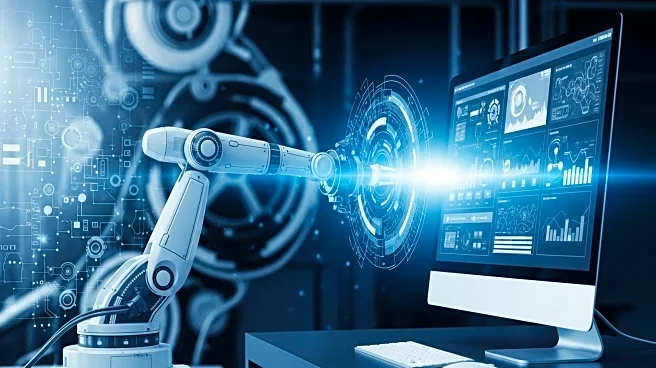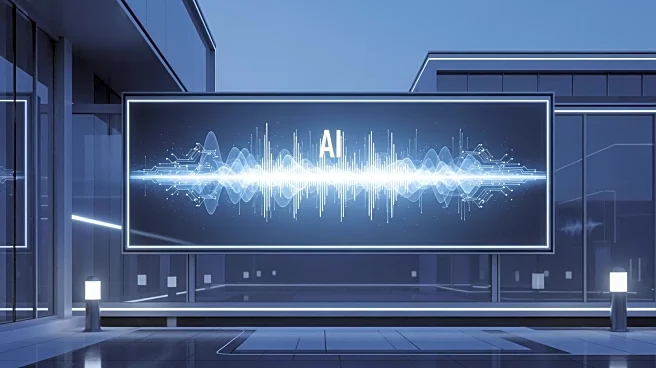What is the story about?
What's Happening?
Accenture has announced the layoff of over 11,000 employees globally within a three-month period as part of an $865 million restructuring program. This move is aimed at saving the company more than $1 billion. The restructuring is driven by the increasing demand for AI-driven solutions from corporate clients, necessitating a realignment of Accenture's workforce. According to Accenture's chief executive, Julie Sweet, the company is focusing on roles that can quickly adapt to new AI technologies, while those that cannot are being phased out. This trend is not isolated to Accenture; other major companies like Microsoft and Google are also undergoing similar transformations. Microsoft has cut over 15,000 jobs in 2025, aligning with its AI-first strategy, while Google has dismissed over 200 AI contractors. These changes reflect a broader industry shift towards AI integration, affecting various sectors including consulting, engineering, and creative industries.
Why It's Important?
The restructuring at Accenture and similar moves by other tech giants underscore a significant shift in the global workforce landscape, driven by the rapid adoption of AI technologies. This transformation highlights the urgent need for reskilling among workers, as traditional roles in consulting, engineering, and creative fields face obsolescence due to automation. Companies are reallocating resources from human labor to AI technologies, which could lead to increased efficiency and cost savings. However, this also poses challenges for employees who must adapt to new skill requirements to remain relevant in the job market. The broader impact on society includes potential job displacement and the need for educational systems to evolve in response to these technological advancements.
What's Next?
As Accenture and other companies continue to restructure their workforces, there will likely be increased emphasis on reskilling programs to help employees transition to AI-related roles. Companies may also invest more in AI technologies and infrastructure, further accelerating the integration of AI into business operations. Policymakers and educational institutions may need to address the growing skills gap by developing training programs that align with the demands of an AI-driven economy. The ongoing transformation could lead to new job opportunities in emerging fields, but also requires careful management to mitigate the social and economic impacts of widespread job displacement.
Beyond the Headlines
The shift towards AI-driven workforce restructuring raises ethical and cultural questions about the future of work. As companies prioritize efficiency and cost savings, there is a risk of widening economic inequality if displaced workers are unable to find new employment opportunities. The cultural impact of AI integration may also influence workplace dynamics, as human interactions are increasingly mediated by technology. Long-term, this transformation could redefine the nature of work, with implications for job satisfaction, work-life balance, and the role of human creativity in the workplace.

















